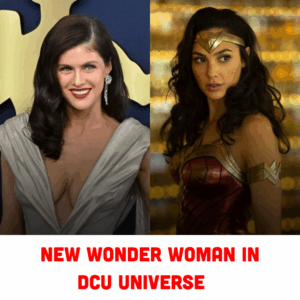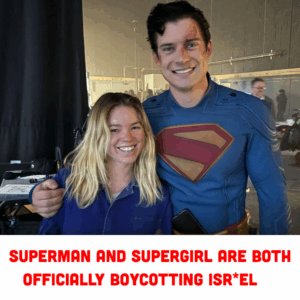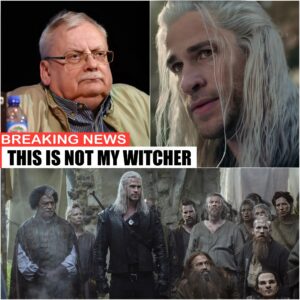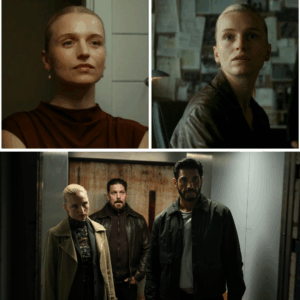In the glittering yet fractious world of Hollywood, where star power often collides with conscience, a seismic shift unfolded in September 2025. Emma Stone and Mark Ruffalo, two of the industry’s most acclaimed figures, affixed their signatures to a pledge spearheaded by Film Workers for Palestine (FWP), vowing to withhold collaboration from Israeli film institutions perceived as complicit in the ongoing Gaza conflict. This initiative, echoing the broader Boycott, Divestment, and Sanctions (BDS) framework, marks a bold escalation in entertainment’s entanglement with geopolitics. As pledges accumulate—surpassing 4,000 signatories including directors, producers, and actors—whispers of severed partnerships and stalled productions ripple through studio lots. Studios like Paramount and Warner Bros. Discovery have publicly rebuffed the call, while counter-movements rally against what critics deem discriminatory overreach. Dubbed Hollywood’s fiercest ideological clash since the #MeToo reckoning, this standoff pits artistic solidarity against professional repercussions, forcing the industry to confront the tangible costs of taking sides in distant wars.
The pledge, unveiled on September 8, 2025, is straightforward in its intent: signatories commit to refusing work with Israeli entities—funds, festivals, co-productions—that have not explicitly distanced themselves from government policies. FWP frames it as a moral imperative, targeting institutions “implicated in the occupation and genocide,” urging a cultural boycott to pressure for policy change. Stone, the Oscar darling behind Poor Things and La La Land, and Ruffalo, the Hulk of Marvel fame and vocal activist on environmental and social fronts, joined luminaries like Javier Bardem, Olivia Colman, Joaquin Phoenix, Tilda Swinton, and Ayo Edebiri. Their involvement amplifies the message; Stone’s indie sensibilities and Ruffalo’s mainstream clout bridge arthouse and blockbuster divides. Ruffalo, no stranger to controversy with past critiques of U.S. foreign policy, stated in a follow-up interview that the move stems from “humanity’s call,” while Stone emphasized amplifying silenced voices. Yet for many, this is less about individual ethics and more about a collective pivot, where entertainment’s global reach becomes a tool for advocacy.
This isn’t Hollywood’s first brush with BDS-inspired actions. The movement, launched in 2005 by Palestinian civil society, seeks economic and cultural isolation of Israel until it meets demands on borders, refugees, and Jerusalem. In film, it has long advocated shunning Israeli productions, from Oscar submissions to international co-ventures. Prior ripples included indie filmmakers declining Tel Aviv festivals or actors skipping Jerusalem premieres. But the 2025 pledge scales up, leveraging post-October 7, 2023, tensions that galvanized both pro-Palestinian activism and backlash. Signatories argue it’s principled non-cooperation, akin to past boycotts against apartheid South Africa. Detractors, however, see it as selective outrage—a blacklist targeting one nation’s artists while ignoring broader regional conflicts. Israeli producers decried it as “misguided,” warning it stifles cross-cultural dialogue essential for empathy-building films.
The fallout has been swift and stratified. Reports surfaced of tentative co-productions shelved: an indie drama bridging Israeli-Palestinian narratives, eyed for Cannes, quietly folded amid funding hesitations. A high-profile streaming deal for an Israeli thriller stalled as talent agencies navigated client sensitivities. Studios, guardians of bottom lines, responded variably. Paramount issued a statement rejecting the boycott as counterproductive to “storytelling that unites,” while Warner Bros. echoed commitments to diverse partnerships. Legal shadows loom larger; advocacy groups like the Brandeis Center dispatched warnings to majors, citing U.S. anti-boycott laws under the Export Administration Act, which penalize discrimination against Israeli entities. Violators risk fines or lost tax incentives—critical in California, where film credits hinge on compliance. One studio exec, speaking anonymously, likened it to navigating a “moral minefield,” where greenlighting Israeli talent could alienate activists, while boycotting invites lawsuits or sponsor pullouts.
This echoes #MeToo’s transformative purge, where speaking out toppled predators but chilled collaborations. Back then, silence was complicity; now, endorsement—or refusal—carries similar weight. Celebrities like Susan Sarandon and Melissa Barrera faced ousters from projects for pro-Palestinian rhetoric deemed inflammatory, highlighting the double bind: vocal support risks blacklisting, quietude invites activist scorn. Stone and Ruffalo, insulated by acclaim, may weather scrutiny, but mid-tier talent fears ripple effects—fewer auditions, wary producers. Agents report heightened vetting; one talent rep noted clients querying Israeli affiliations before signing. Counter-efforts crystallized in an open letter from over 1,200 industry leaders, including Debra Messing and Haim Saban, branding the pledge “discriminatory” and a “double standard” that ignores Hamas’s role or Iran’s proxies. They argue boycotting artists punishes creativity, not policy, and undermines peace prospects through shared narratives.
Hollywood’s fault lines, long simmering, crack wider here. The industry, a mosaic of immigrants and globalists, grapples with identity: liberal bastions like LA pride themselves on progressivism, yet business realities—Israeli co-productions fueling hits like Fauda—clash with ideals. Jewish creators, from Ari Emanuel to Gal Gadot, voice alarm; some form alliances decrying the pledge as veiled antisemitism, evoking historical cultural purges. Palestinian filmmakers, meanwhile, hail it as overdue solidarity, though nuances emerge—a Gaza-born director critiqued the blanket approach for sidelining moderate Israeli voices. Data underscores stakes: Israel’s film sector, buoyed by subsidies and talent, exported $100 million in content last year, partnering with U.S. giants. Disruptions could cascade, from delayed exports to festival voids, echoing BDS’s academic and arts wins but testing Hollywood’s resilience.
Broader cultural wars frame this as entertainment’s latest front. Post-#MeToo, the industry pledged inclusivity; now, geopolitical litmus tests strain that ethos. Streaming behemoths, chasing subscribers amid cord-cutting, eye global markets—Israel’s tech-savvy audience and Arab viewership balance precariously. Netflix and Amazon, silent thus far, face internal pushes; staff petitions mirror campus protests. Yet pragmatism prevails: a Palestinian Oscar contender producer slammed the boycott as counterproductive, arguing dialogue, not isolation, fosters understanding. Parallels to South Africa persist—BDS claims victories there spurred change—but detractors note Israel’s democratic elections versus apartheid’s rigidity, questioning equivalence.
For Stone and Ruffalo, the price manifests personally. Ruffalo, a perennial activist, risks alienating conservative fans and Marvel ties, though his Hulk role endures. Stone, more private, ventures into terrain her rom-com roots avoided; whispers of awards-season hesitations swirl, though her Poor Things acclaim shields somewhat. Both embody the pledge’s aspirational core: leveraging fame for justice. Yet history tempers optimism—post-2014 Gaza flare-ups, similar calls fizzled without systemic shift. Hollywood’s moral wars often end in compromise: selective partnerships, quiet donations, or pivots to neutral ground.
As 2025 unfolds, the pledge tests the industry’s spine. Will it fracture alliances, birthing parallel ecosystems? Or compel dialogue, yielding hybrid productions? Studios’ rejections signal resistance, but talent’s sway could tip scales—festivals like Toronto already navigate boycotts. In an era of fragmented audiences, where TikTok amplifies outrage and box offices crave universality, this clash underscores entertainment’s dual role: escapism and mirror. Stone and Ruffalo’s stand, principled or polarizing, ignites debate on when advocacy crosses into exclusion. The true cost? A creative community divided, where scripts of unity ring hollow amid real-world rifts. Hollywood, ever the storyteller, now authors its own divisive epic—one signature at a time.





